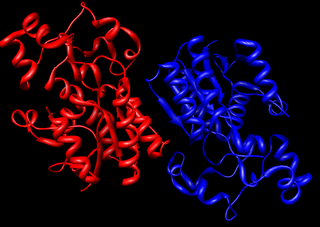
An inductor, also called a coil, choke, or reactor, is a passive two-terminal electrical component that stores energy in a magnetic field when electric current flows through it. An inductor typically consists of an insulated wire wound into a coil.
Spontaneous human combustion (SHC) is the pseudoscientific concept of the combustion of a living human body without an apparent external source of ignition. In addition to reported cases, descriptions of the alleged phenomenon appear in literature, and both types have been observed to share common characteristics in terms of circumstances and the remains of the victim.
Gestalt psychology, gestaltism or configurationism is a school of psychology that emerged in the early twentieth century in Austria and Germany as a theory of perception that was a rejection to the basic principles of Wilhelm Wundt's and Edward Titchener's elementalist and structuralist psychology.

The Westermarck effect, also known as reverse sexual imprinting, is a psychological hypothesis that people who live in close domestic proximity during the first few years of their lives become desensitized to sexual attraction. This hypothesis was first proposed by Finnish anthropologist Edvard Westermarck in his book The History of Human Marriage (1891) as one explanation for the incest taboo.
In psychology and ethology, imprinting is any kind of phase-sensitive learning that is rapid and apparently independent of the consequences of behaviour. It was first used to describe situations in which an animal or person learns the characteristics of some stimulus, which is therefore said to be "imprinted" onto the subject. Imprinting is hypothesized to have a critical period.
Proxemics is the study of human use of space and the effects that population density has on behaviour, communication, and social interaction.
In social psychology, propinquity is one of the main factors leading to interpersonal attraction.
A single-player video game is a video game where input from only one player is expected throughout the course of the gaming session. A single-player game is usually a game that can only be played by one person, while "single-player mode" is usually a game mode designed to be played by a single player, though the game also contains multi-player modes.

Jennifer Hale is a Canadian-American voice actress. She is best known for her work in video game franchises such as Baldur's Gate, Mass Effect, Metal Gear Solid, BioShock Infinite, Metroid Prime, Overwatch, and Star Wars: Knights of the Old Republic. In 2013, she was recognized by Guinness World Records as the most prolific video game voice actress.
Proximity effect may refer to:

Devil Lady, known in Japan as Devilman Lady, is a 1997 manga series written and illustrated by Go Nagai, and the sequel to Devilman. It was originally serialized by Kodansha from January 1997 to July 2000 in the magazine Weekly Morning, and later collected in 17 volumes. The story follows Jun Fudo, a model who can transform into the powerful Devil Lady and protects humanity from devil beasts and their creations.

Bisphosphoglycerate mutase (BPGM) is an enzyme unique to erythrocytes and placental cells. It is responsible for the catalytic synthesis of 2,3-Bisphosphoglycerate (2,3-BPG) from 1,3-bisphosphoglycerate. BPGM also has a mutase and a phosphatase function, but these are much less active, in contrast to its glycolitic cousin, phosphoglycerate mutase (PGM), which favors these two functions, but can also catalyze the synthesis of 2,3-BPG to a lesser extent.

A proximity sensor is a sensor able to detect the presence of nearby objects without any physical contact.

Splicers is a role-playing game using the Palladium Books Megaversal gaming system. The game is set in the midst of a war between humans and a world-wide computer intelligence alternately referred to as the N.E.X.U.S. or the Machine. Players take on the roles of humans engaged in the fight against robotic, android, and necrotic minions of the Machine, using technology that is primarily derived from highly advanced biotechnology. The computer intelligence has released a "nanobot plague" on the world; within a few seconds of a human touching non-precious metal, the item will begin to twist and attack the person, sometimes even animating into a robotic minion of the Machine. The result is that the nanoplague has effectively made non-precious metal allergic to mammalian life.

Ammunition is the material fired, scattered, dropped or detonated from any weapon or weapon system. Ammunition is both expendable weapons and the component parts of other weapons that create the effect on a target. Nearly all mechanical weapons require some form of ammunition to operate.
Mass Effect is a science fiction media franchise created by Casey Hudson, Drew Karpyshyn and Preston Watamaniuk. The franchise depicts an alternate universe where humanity and several alien civilizations have colonized the Milky Way galaxy using technology seemingly left behind by an advanced precursor civilization.
The principles of grouping are a set of principles in psychology, first proposed by Gestalt psychologists to account for the observation that humans naturally perceive objects as organized patterns and objects, a principle known as Prägnanz. Gestalt psychologists argued that these principles exist because the mind has an innate disposition to perceive patterns in the stimulus based on certain rules. These principles are organized into five categories: Proximity, Similarity, Continuity, Closure, and Connectedness.
Within the realm of social psychology, the proximity principle accounts for the tendency for individuals to form interpersonal relations with those who are close by. Theodore Newcomb first documented this effect through his study of the acquaintance process, which demonstrated how people who interact and live close to each other will be more likely to develop a relationship. Leon Festinger also illustrates the proximity principle and propinquity by studying the network of attraction within a series of residential housing units at Massachusetts Institute of Technology (MIT). Both of these studies provide evidence to support the fact that people who encounter each other more frequently tend to develop stronger relationships.
Legion is a character in BioWare's Mass Effect franchise. The character first appears in Mass Effect 2 as a party member. After Mass Effect 2, Legion returns in Mass Effect 3 as a supporting non-player character. Legion is voiced by American actor D. C. Douglas.








